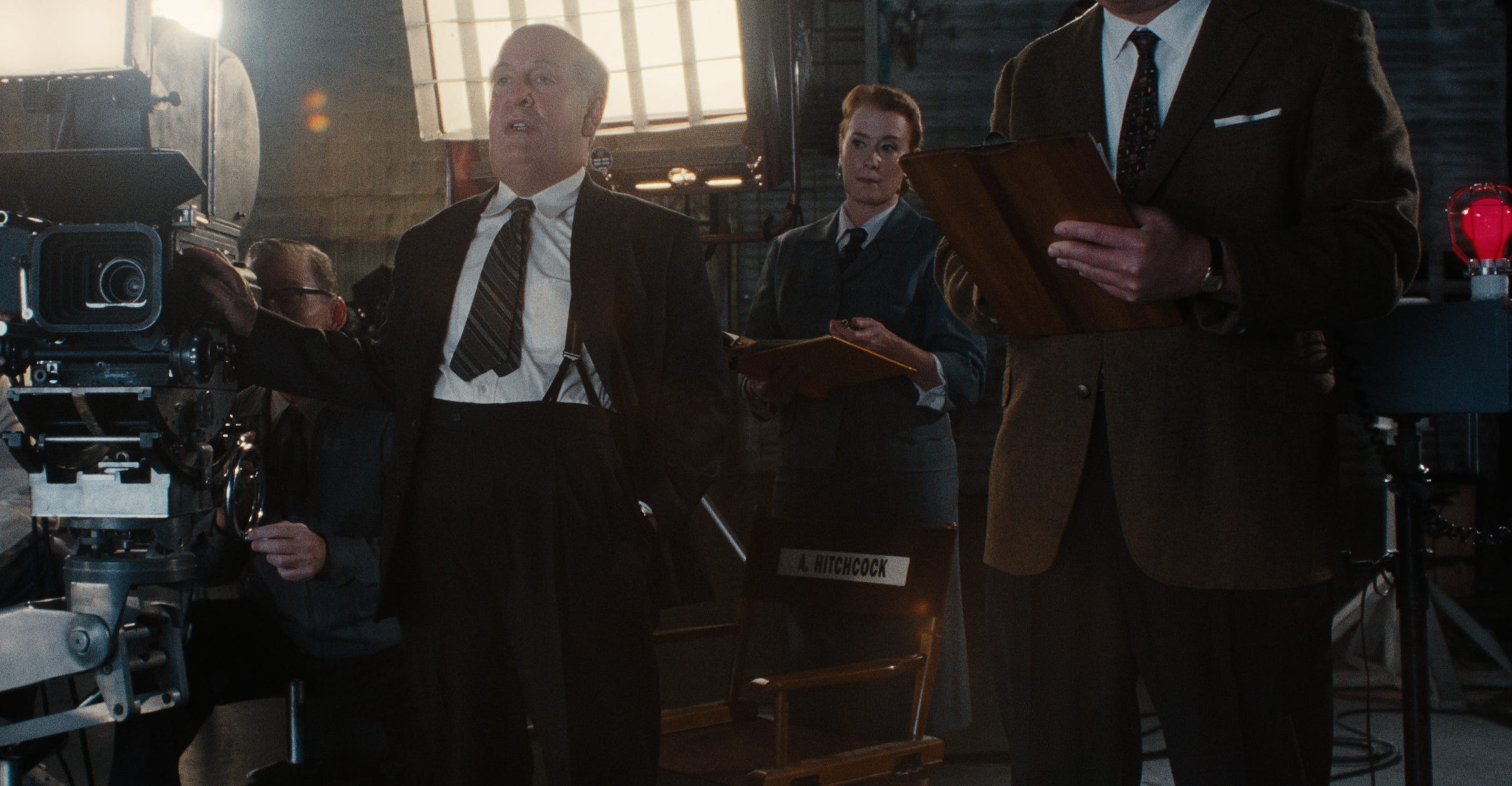One of the most surprising parts of Monster: The Ed Gein Story on Netflix was the fact this series wasn’t just showing Gein’s crimes as they unfolded – but flicking to the age in cinema where films were being produced directly inspired by what he did. Most notably, Alfred Hitchcock and his seminal work Psycho. The creation and controversy of Psycho is almost as important a part of The Ed Gein Story as what Ed Gein himself did – and a lot of focus is on Alfred Hitchcock and his approach to the source material. The show also shows Alfred Hitchcock as a peeping Tom, perving on stars of his film through a hole in the wall. But is this true? Here’s what The Ed Gein Story actually got right about Alfred Hitchcock and the allegations against him and his voyeurism.
Did Hitchcock perv like shown?
There’s no evidence of the photo frame moment happening like its shown in The Ed Gein Story, but multiple stars have spoken out about Alfred Hitchcock and accused him of controlling behaviour, abuse and voyeurism when working on movies with him.

Tippi Hedren, the star of Alfred Hitchcock films The Birds and Marnie, has spoken most candidly about Hitchcock’s behaviour. She described his obsession with her as “sexual, perverse and ugly,” recalling that he attempted to control every aspect of her life during filming. “It was sexual, it was perverse, and it was ugly, and I couldn’t have been more shocked or repulsed,” she told Vanity Fair. When she rejected his advances, he retaliated by stifling her career.
“He told me, ‘If I leave, I’ll ruin your career.’ And he did,” Hedren said in an interview with The Telegraph. Bound by a restrictive contract, Hedren was paid $600 a week for two years while Hitchcock refused to let her work for other directors. “To be the object of someone’s obsession is horrible,” she reflected. “It was a form of stalking. … He had me under contract and for two years paid me $600 a week while refusing requests by other studios and directors to let me work for them.”
The actress later likened her experience to being trapped in “a mental prison,” adding that although Hitchcock “tried” to destroy her, “he didn’t ruin [her] life.”
Kim Novak, who starred in Hitchcock’s Vertigo, experienced a subtler but no less troubling version of that same control. She described how Hitchcock dictated her every move, from the way she stood to how she spoke, stripping her of autonomy in the name of precision. “He was very exact in telling me exactly what to do. How to move, where to stand,” Novak told Roger Ebert. “I think you can see a little of me resisting that in some of the shots, kind of insisting on my own identity.” In a later interview with The Guardian, she reflected on the broader pressures of Hollywood at the time: “In Hollywood, they think they want you, but really they want what they want you to be.”
On his voyeuristic ways and voyeurism itself, Alfred Hitchcock was self aware. He once said “The audience is a voyeur. We are all voyeurs. I feel that the public, myself included, are voyeurs. We’re all peeping Toms to some extent.”
For all the latest Netflix news and drops, like The Holy Church of Netflix on Facebook.
